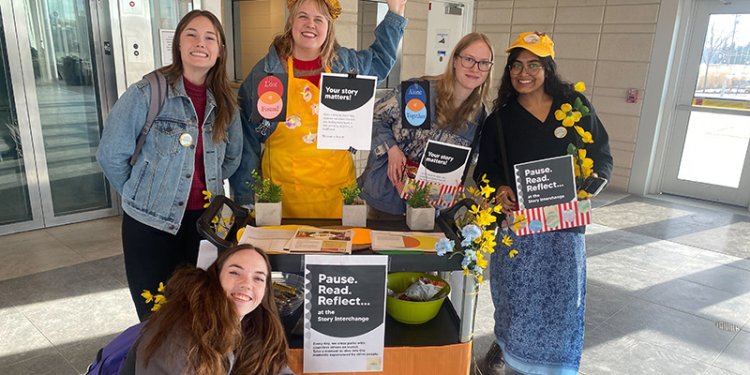A valid criticism of some government and community group work is that it takes a long time. Frequently, there are good reasons for slow and careful work, and there is also value in a faster, more experimental approach.
The Recover team looked for opportunities for quickly testing ideas on a small scale before investing a lot of time and energy into them, and then used the learnings to lead to future steps.
In all of the Recover prototypes, the lived experience of community members was centered.
The Roles and Practices of Prototyping
Prototyping encourages people to look at old problems in new ways. They are meant to test the most uncertain element of an idea or intervention.
The main objective of all prototypes is to learn. It involves designing for segments of people and getting real feedback:
- To learn what works
- What doesn’t work
- For whom and under what conditions
This is important because nothing works for everyone.
The Recover prototypes were often related to roles and practices. They allowed for lots of learning and some of them were tested multiple times - iterating and focusing on learning about different aspects of the prototype. Other areas of the City have also supported a number of prototypes and will continue to do so in a variety of ways. Each prototype is done in partnership with others and we are privileged to learn alongside them, and try to cultivate a community of shared learning and mutual support.
The City of Edmonton continues to experiment, learn and adapt.
Systematic Conditions
Part of prototyping is also noticing what conditions in our systems help or hinder the prototypes from flourishing. With each prototype round, we learned about conditions such as:
- What resources were available and managed
- How information flowed
- What information, perspective or knowledge system was prioritised
- How decisions were made
- How policies, practices, rules and regulations all came into play
- How values, pervasive narratives, beliefs and logics impacted on reporting and measuring
Given that the City of Edmonton is less involved with many front-line social issues like houselessness, mental health and addiction, their role is more about supporting the conditions that affect these issues, focusing on items that can expand potential solutions and support systemic change.
The Continuing Prototypes
In 2024, when Recover Urban Well-being ended, it was supporting 4 prototypes that were intended to continue and evolve.
Unacknowledged and unprocessed grief and loss keeps people stuck in chronic cycles of crisis. Soloss is community care for loss and grief, offering peer-to-peer support and the co-creation of individual and neighbourhood healing rituals. It is a network of Edmontonians legitimising and destigmatizing loss and grief.
By bearing witness to loss in all its forms and giving grief a concrete form - such as through paintings, objects, songs, dances, meditations and stories - Soloss seeks to foster a deep sense of respect, connectedness and meaning.
REACH Edmonton has adopted Soloss and supports it now.
Main Contact: Hayley Sallis - hayley@soloss.ca
Auricle is about measuring well-being in a new way and it is also a well-being intervention: the way in which data is collected with Auricle also improves well-being.
A new community role, a Local Listener:
- Collects stories as data
- Has the person sharing the story say what it means
- Invites the community to help with sense-making
It is a way to include people that are typically left out of other data sets, get more nuance, make space for diverse narratives, expand the solution space and de-colonize data.
Starting in the fall of 2024 till the fall of 2025, it is being tested in transit spaces in support of safety and well-being in public transit.
This workshop series is more experiential than typical Equity, Diversity, and Inclusion (EDI) training.
It brings people together to learn about perspectives and experiences of well-being. The main workshop features a knowledge keeper, a person who has deep experience of houselessness and marginalization, and who is also an artist with gifts to share. They share their story and teach others how to make a small art project. The workshop series aims to increase empathy across lines of difference, as well as motivation to connect. It is about nurturing healthy reciprocal relationships with street-involved people.
The plan is to offer another series in partnership with The Imagine Institute for Learning, in the hopes that they might carry it on.
This work draws upon ideas from the 2022 lived experience research conducted by InWithForward for the City of Edmonton’s update to its Affordable Housing Needs Assessment.
The research uncovered numerous areas of opportunity and potential solutions that could be developed and tested collaboratively. City staff have been exploring these ideas through further community-based research. Preliminary steps for developing the prototype are underway and it will be further developed in 2025.


